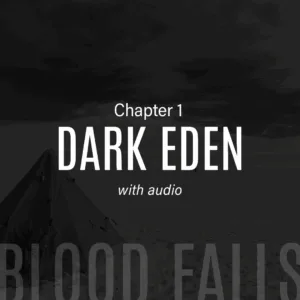The Philistine also said to David, ‘Come to me, and I will give your flesh to the birds of the sky and the beasts of the field.’ Then David said to the Philistine, ‘You come to me with a sword, a spear, and a javelin, but I come to you in the name of the Lord of hosts, the God of the armies of Israel, whom you have taunted.’
– 1 Samuel 17:44-45
There’s a reason for the daily battles.
They come in waves, day after day, night after night: constant attacks on our jobs, relationships, finances, health, and souls. The battles against the people of God are constant, wearying, discouraging. Behind each one a mocking voice assails us, declaring our certain destruction. This year has been a hard one for many of us, and it’s easy to be discouraged right now. But the trials that threaten to be take us down can teach us vital lessons in spiritual warfare. The constant smaller battles are the training for the larger one, the fight for our people and our faith.
A shepherd in Israel once learned war by caring for sheep. The lessons he learned in the lesser daily struggles taught him how to fight to win the important battles and what weapons were effective against those who prey on the innocent.
David was a young Israeli man who watched over his father’s flocks. Goliath was a Philistine giant who hated Israel. The first book of Samuel relates the account of the aggression of the Philistines who came up against Israel. The Israeli army assembled to resist them, but their fear kept them from engaging their enemy. They stayed encamped day by day between their enemies and their families but could neither advance nor retreat, existing instead in the no-man’s land between victory and defeat.
Every day, the Philistines sent out their champion Goliath, who taunted the army of Israel with his threats as they cowered in their tents. One day David took provisions to his brothers in the camp and was astounded by their inaction. Battle-hardened by his years of single-handedly fighting off the vicious predators of his father’s sheep, David was irked by Goliath’s insults against God. He accepted Goliath’s challenge to fight him.
David rejected any weapons except the one that was battle-tested: his slingshot. From the river he chose five smooth stones. They needed to be smooth to cut down on friction, thereby sailing faster through the air when released from the slingshot.
Much has been written about the number of stones David chose from the river. Some tie it to grace, since the number five represents grace in the Bible. But David did not give grace to the giant. He killed him. Others say the number five represents the five-fold ministry given to the saints. But David only used one stone. Since it appears that Goliath had four brothers, a more reasonable explanation might be that he armed himself with a stone for each of them, in case he wound up facing all five of them.
Although other applications and symbolism may be attached to the account, the most likely reason David chose five stones was that he was an experienced shepherd.
He knew that when he faced an enemy of any sort, whether it was a lion, bear, or giant, he needed to be well-prepared. David ensured that he had enough ammunition to finish the job of dispatching the enemy of his people.
But David only needed one good shot, and he took it.
The Hebrew word for “stone” is אבן, transliterated into the English word Eben. The Hebrew word is a contraction of two words, “Father” and “Son.” All David needed was to exercise the authority of the Father and the Son in the power of the Holy Spirit to gain victory over his enemy.
If you awaken each day to a Goliath that stalks your valley to torment and threaten you, take charge. You may or may not be able to change the situation, but you can silence the voice of intimidation and fear, live in peace, and see deliverance. God rescues His people.
The Lord does not deliver by sword or by spear; for the battle is the Lord’s….
-1 Samuel 17:47

























Leave a Reply